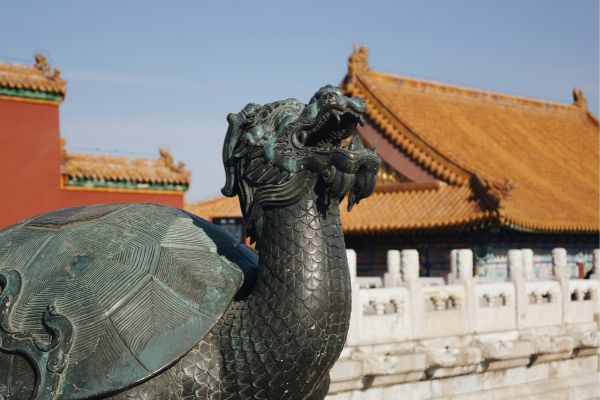
For commercial parties who choose to settle their disputes through litigation or arbitration, winning a favorable judgment or arbitral award is only half the battle. Sometimes, the losing parties may nonetheless refuse to perform their obligations. Then, the winning parties may need to apply for the recognition and enforcement of judgment or arbitral award in a foreign country where the losing parties have assets. Recognition and enforcement of judgments or arbitral awards has thus become a new battleground for both parties. When it comes to the stage of recognition and enforcement, limitation period is a decisive factor but can be easily ignored by the winning parties. In this regard, the author has studied the limitation period to apply for enforcement of foreign judgments or arbitral awards in different countries, and relevant study has been published in China Review of Administration of Justice[1] (中国应用法学) and Indian Journal of Arbitration Law[2] respectively. The following is a summary of China’s laws and practices regarding the issue of limitation period.
I. Applying for Enforcement of Foreign Judgments in China
1. Legal Provisions
Article 215 of China’s Civil Procedure Law (CPL) in 2007 stipulated that the limitation period to apply for enforcement of a judgment shall be two years. The “judgment” in Article 215 only refers to domestic judgments, and it is not clear whether the enforcement of foreign judgments is subject to the two-year limitation period or not. The Standing Committee of the National People’s Congress (SCNPC) of China amended the CPL in 2012 and 2017, and according to the latest revision, the provision providing for the limitation period has been changed to Article 239,[3] which is a verbatim adoption of Article 215 of the CPL in 2007. However, Article 239 remains silent on whether the two-year limitation period applies to foreign judgments or arbitral awards.
Before 2015, Chinese courts often applied the two-year rule when dealing with applications for the enforcement of foreign judgments. In 2015, the Supreme People’s Court (SPC) made it clear that the two-year limitation period also applies when a party seeks to enforce a foreign judgment. Pursuant to the Interpretation on the Application of the Civil Procedure Law of the People’s Republic of China (《关于适用<中华人民共和国民事诉讼法>的解释》), the limitation period to apply for recognition and enforcement of foreign judgments or arbitral awards, just as the enforcement of domestic judgments, shall also be subject to the two-year limitation period. If a party only applies for recognition but not for enforcement, the limitation period to apply for enforcement shall commence from the date when the court ruling on the application for recognition takes effect.[4]
2. Cases
A. Refusing Enforcing a Foreign Judgment that Exceeding the Two-year Limitation Period
In Jin Zhimei v. Piao Yujing, [(2020) Liao 01 Xie Wai Ren No.7 ((2020)辽01协外认7号)], the applicant Jin Zhimei applied to Shenyang Intermediate People’s Court of Liaoning Province (“the Shenyang Court”) for the recognition and enforcement of two South Korean judgments. In this case, the applicant Jin Zhimei and the respondent Piao Yujing, filed the suit for confirming the absence of debts (the claim) and the suit for returning the agreed payment (the counterclaim) before the Seoul Southern District Court of South Korea (“the Korean Court”). Following an appeal by Piao Yujing, the Korean Court rendered a final judgment, requiring Piao Yujing to pay Jin Zhimei KRW 4 million and interest, which took effect on 14 Dec. 2013.
On 8 Apr. 2020, Jin Zhimei applied to the Shenyang Court for the recognition and enforcement of the judgment. The Shenyang Court held that, with no evidence of suspension or interruption of the limitation period, the date of application had obviously exceeded the two-year limit under Chinese law. Therefore, the Shenyang Court refused to recognize and enforce the Korean judgments.
B. The Interruption of the Limitation Period
In Przedsiębiorstwo Przemysłu Chłodniczego Fritar S.A., Poland (hereinafter “Przedsiębiorstwo”) v. Ningbo Yongchang Industrial & Trading Co., Ltd. (hereinafter “Yongchang”) [(2013) Zhe Yong Min Que Zi No. 1 ((2013)浙甬民确字第1号)], the applicant Przedsiębiorstwo applied to the Ningbo Intermediate People’s Court of Zhejiang Province (“the Ningbo Court”) for recognition and enforcement of the monetary judgment made by the Polish court. In this case, the Court of Appeals in Wroclaw ordered Yongchang to refund the amount paid by Przedsiębiorstwo according to another judgment and bear the corresponding court costs. The judgment came into effect on 12 May 2009.
On 8 Apr. 2011, Przedsiębiorstwo sent relevant materials to the Ningbo Court to apply for recognition and enforcement of the Polish court judgment. Due to the incompleteness of application materials, the Ningbo Court did not register the case. On 5 Feb. 2013, Przedsiębiorstwo submitted the supplementary materials to the Ningbo Court.
One of the disputed issues, in this case, was whether Przedsiębiorstwo filed the application for enforcement within the two-year limitation period. Regarding this issue, the Ningbo Court held that was within the two-year limitation period when Przedsiębiorstwo applied for enforcement of the judgment on 8 Apr. 2011, which had constituted an interruption of limitation period under Chinese law, and the limitation period shall be recalculated from then on. Consequently, the Ningbo Court held that the submission of the supplementary materials by the applicant on 5 Feb. 2013 was still within the two-year limitation period. Therefore, the Ningbo Court decided to recognize and enforce the Polish judgment.
II. Applying for Enforcement of Foreign Arbitral Awards in China
1. Legal Provisions
As mentioned above, the SPC clarified in 2015 that the enforcement of a foreign arbitral award is governed by Article 239 of the CPL, which provides a two-year limitation period.[5] Meanwhile, Article 239 of the CPL also stipulates that the two-year limitation period shall commence from the last day of the period specified by the legal document for its performance; if the legal document specifies that it shall be performed in separate stages, the time limit shall commence from the last day of the period specified for each stage of performance.[6]
2. Cases
A. The Commencement of Limitation Period
In Shanghai Jwell Machinery Co. Ltd. v. Retech Aktiengesellschaft [“Jwell”],[7] the Chinese court adopted a novel discoverability rule to determine the commencement of limitation period.[8] Under the discoverability rule, the limitation period begins to run when the award creditor discovers that the award debtor has assets or appears in the enforcing state.[9] In Jwell,[10] Shanghai Jwell, the award creditor, sought to enforce an award made by the China International Economic and Trade Arbitration Commission (CIETAC) on 18 Sept. 2006. After an unsuccessful attempt for enforcement before the Swiss court, Jwell discovered that the award debtor’s machinery was on exhibition in Shanghai on 30 July 2008. On the same day, Jwell requested the Shanghai court to enforce the award.[11] Retech objected to the enforcement by claiming that Jwell’s application for enforcement has exceeded the limitation period under the CPL.[12] The Shanghai court held that, under Chinese law, the award creditor obtained the right to request civil compulsory enforcement when the award debtor failed to perform the obligation under the award, and thus, enforcement jurisdiction is the basis and precondition of award creditor’s right to apply for civil compulsory enforcement.[13] Then the Court stated that Shanghai court did not obtain enforcement jurisdiction until 30 July 2008 since neither the award debtor nor its property appeared in China before then. The Court concluded that the limitation period for enforcement begins to run when the court’s enforcement jurisdiction is confirmed, which is the date that award creditor discovered the property available for enforcement in China.[14] In the end, the Shanghai court decided that the limitation periods began to run on 30 July 2008, and Jwell’s application for enforcement was not time-barred.
B. The Suspension of Limitation Period
The suspension of limitation period may occur when award creditors withdraw their application for enforcement. In O’KEY Logistics LLC v. Guangdong SouthFortune Import & Export Co., Ltd.,[15] O’KEY Logistics sought to enforce an arbitral award beforea Chinese court. The award was made on 8 Dec. 2010. On 19 Apr. 2012, O’KEY Logistics first filed an application to enforce the award. Later, on 5 Nov. 2012, O’KEY withdrew the application for the reason that it would take a long time to get the relevant evidence certificated and notarized. On 24 Jan. 2013, more than two years after the award was made, O’KEY Logistics submitted its application for enforcement again. The Guangzhou Intermediate People’s Court held that O’KEY’s withdrawal of application to enforcement led to the suspension of the limitation period. Therefore, O’KEY’s application filed on 24 Jan. 2013 fell within China’s two-year limitation period under the CPL.
[1] 参见刘桂强,《外国法院判决执行中的时效问题研究》,《中国应用法学》2020年第4期,第109-124页。
[2] Guiqiang Liu, Limitation Period for the Recognition and Enforcement of Foreign Arbitral Awards, 9(1) Indian Journal of Arbitration Law 95-121 (2020).
[3] China’s Civil Procedure Law, Art. 239. (“The limitation period for submission of an application for enforcing judgment shall be two years. The termination or suspension of the limitation period for submission of an application for enforcement shall be governed by the provisions of law on the termination or suspension of the limitation of action.”)
[4] Interpretations of the Supreme People’s Court on the Application of the Civil Procedure Law of the People’s Republic of China, Art. 547. (The limitation period for a party concerned to apply for recognition and enforcement of a legally binding judgment or ruling rendered by a foreign court or a foreign arbitration award shall be governed by Article 239 of the Civil Procedure Law.) [hereinafter “SPC Interpretations”]
[5] See SPC Interpretations, supra note 4, Art. 547.
[6] Chinese Civil Procedure Law (2017), Art. 239.
[7] Shanghai Jwell Machinery Co., Ltd v. Retech Aktiengesellschaft, Chinese Supreme People’s Court, 18 December 2014. The English translation of the judgment is available at: https://cgc.law.stanford.edu/wp-content/uploads/sites/2/2015/09/GC37-English.pdf [hereinafter “Jwell”].
[8] Sumru Akter, Flipping the Hourglass: Time Limits for the Recognition and Enforcement of Foreign Arbitral Awards, in 60 YEARS OF THE NEW YORK CONVENTION: KEY ISSUES AND FUTURE CHALLENGES 85, 93 (Katia Fach Gómez & Ana M. Lopez-Rodriguez eds., 2019).
[9] Id.
[10] Jwell, supra note 7, at 1-8.
[11] Id. at 4.
[12] Id..
[13] Id. at 7.
[14] Id. at 8.
[15] See O’KEY Logistics LLC v. Guangdong SouthFortune Import & Export Co., Ltd., the Guangzhou Intermediate People’s Court of Guangzhou, 3 December 2013. The English translation of the judgment is available at: http://cicc.court.gov.cn/html/1/219/199/204/683.html.
Photo by Ferdinand (https://unsplash.com/@ferdinand_feng) on Unsplash
Contributors: Guiqiang LIU 刘桂强






